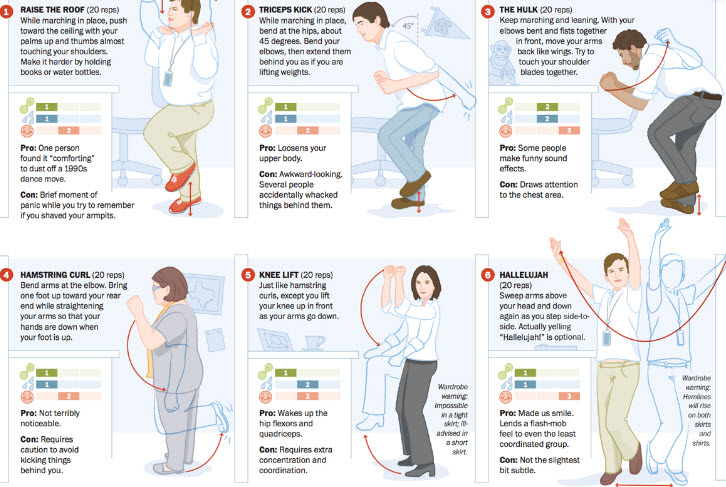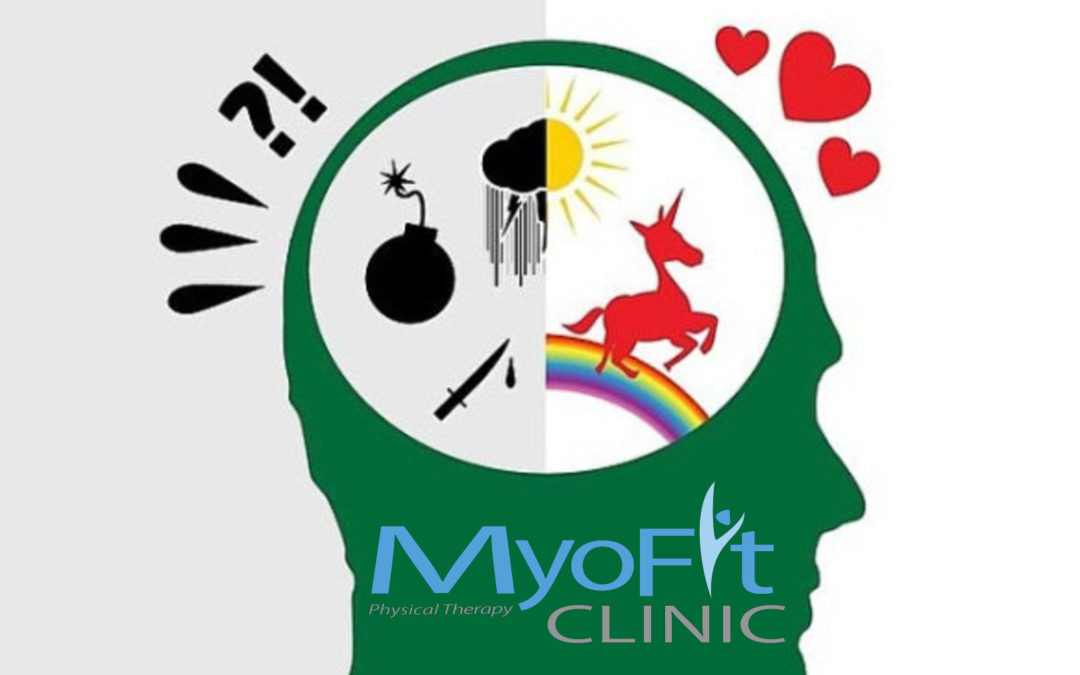While the link between exercise and enhanced physical health is common knowledge, it is also important to recognize how vital exercise is for your mental health.
Insight into how doing an exercise as simple as a leisurely walk can boost your mood and overall sense of well-being came to light in a study at the University of Connecticut that was published in the Journal of Health Psychology.
The researchers involved 419 healthy, middle-aged adults in their study. Each of them had their daily activity monitored over a four-day period using an accelerometer they wore on their hips. As well, they detailed their daily exercise routines in questionnaires as well as describing their sense of psychological well-being, their level of depression, whether or not they experienced pain and its level of severity, and the extent to which pain disrupted their daily activities. Some findings included:
- The adults who reported the most sedentary lifestyle had the highest levels of depression and the lowest levels of feelings of well-being.
- The difference was obvious in those who engaged in just light-intensity activity, such as going for a leisurely walk. They felt better about themselves and had lower depression.
- Those who undertook moderate-intensity activity had an even higher sense of well-being in addition to reduced severity of pain.
- Interestingly enough, those who engaged in vigorous-intensity activity, meaning jogging or walking a mile in 13 minutes, reported no impact on their subjective well-being. So a 30-minute workout even at work can be achieved such as walking around every 2 hours.
The researchers concluded that even moderate exercise where people are out and moving but not pushing themselves too hard is actually helpful. In other words, they said people need to understand that simply going from doing no physical activity to doing some can make them feel better.

Recurring depression linked to issues with memory problems later.
If a simple walk a day can ward off symptoms of depression, why is that so important?
The strategy takes on new relevance since a study out of the United Kingdom and published in The British Journal of Psychiatry showed that people who go through life with dysphoria, a kind of dissatisfaction with life that is often a symptom of depression, had poorer working memory than people with no mental health issues.
In fact, those with mental health problems throughout life are appearing to experience more memory problems as early as 50 years of age. Although just one episode of depression or another mood disorder in life did not impact their mid-life memory, repeated episodes were a clear indicator of pending memory issues later on.
The researchers at the University of Sussex suggested that their findings should prompt both individuals and governments to educate people on the dangers of poor mental health and how taking up physical exercise in addition to maintaining strong relationships with friends and family, or practicing mindfulness meditation, could all boost mental health.
They encourage people to seek help for depression or anxiety rather than just allowing the problem to continue to develop. From this Dr. Adam encourages patients to keep moving and engage in some form of physical exercise daily. You may wonder such as;
- Determining the right amount of physical exercise for you
- Inevitably the question arises: “How much is right for me?”
I can tell them what their body needs, but after reading the research about the link between exercise and mental health, I also want to educate them about how much exercise their mind needs.
To do that I turned to a 2018 study published in The Lancet Psychiatry where researchers found that different kinds of team-oriented sports, cycling, and aerobic exercise are the most beneficial to mental health.
This was one of the findings from the Yale University study that involved 1.2 million people from all across the United States with a goal to gaining a better understanding of how exercise affects a person’s mental health, and which types of exercises work best to boost moods and discourage depression.
- In the end, they observed that almost any kind of exercise can help, up to and including performing childcare, doing housework, cycling, going to the gym and running.
- The researchers determined that the participants who benefited the most in terms of mental health were those who exercised for 30-60 minutes three to five times a week.
- There was a caveat on the exercise equals improved mental health equation, however.
People who exercised for over three hours a day actually had worse mental health than those who did not exercise at all. When it comes to mental health and exercise, it seems, anything is better than nothing, but too much is worse.
The researchers found that it is a myth that the longer you exercise, the better you will feel. In fact, people who exercised for longer than 90 minutes at a time and for more than 23 times a month had worse mental health. It was observed that those who overly-exercise may be exhibiting obsession behaviors associated with poor psychological and emotional outcomes.
Overall, however, age and all types of exercise seemed to help manage mental health issues. Even activities that were not usually thought of as exercise, such as doing household chores, were linked with better mental health.
Overall components of healthy exercise programs such as our wellness and nutritional services:
For my own patients, I use a variety of different exercise components to achieve different goals. These include mobility exercises, exercises to improve strength and range of motion, balance and proprioception exercises, exercises for vertigo and dizziness, functional stability exercises and cardiovascular exercises.
All prescribed exercises are tailored to the specific physical needs of the client. The person who is having trouble walking after total knee replacement surgery needs a different approach for the seasoned athlete who wants to engage in specific sports conditioning before the start of his sport’s season. The bottom line is exercise has a significant impact on improving mental health and needs to be a part of your weekly routine to maintain and improve your mental well-being.
Dr. Adam M. Cramer, PT, DPT, is a licensed physical therapist, exercise specialist and owner of MyoFit Clinic in Chardon, Ashtabula and Middlefield, Ohio.
References
Chekroud, Sammi R et al. Association between physical exercise and mental health in 1.2 million individuals in the USA between 2011 and 2015: a cross-sectional study. The Lancet Psychiatry. Published Aug. 8, 2018. https://www.thelancet.com/journals/lanpsy/article/PIIS2215-0366(18)30227-X/fulltext
John, Amber et all. Longitudinal associations of affective symptoms with mid-life cognitive function: evidence from a British birth cohort. The British Journal of Psychiatry. Published 21 March 2019. https://doi.org/10.192/bjp.2019.24 . https://www.cambridge.org/core/journals/the-british-journal-of-psychiatry/article/longitudinal-associations-of-affective-symptoms-with-midlife-cognitive-function-evidence-from-a-british-birth-cohort/793ACA061D1FCADB853235F7DD9B83A1
Panza, Gregory A. et all. Physical activity intensity and subjective well-being in healthy adults. Journal of Health Psychology. First published February 12, 2017. https://doi.org/10.1177/1359105317691589

